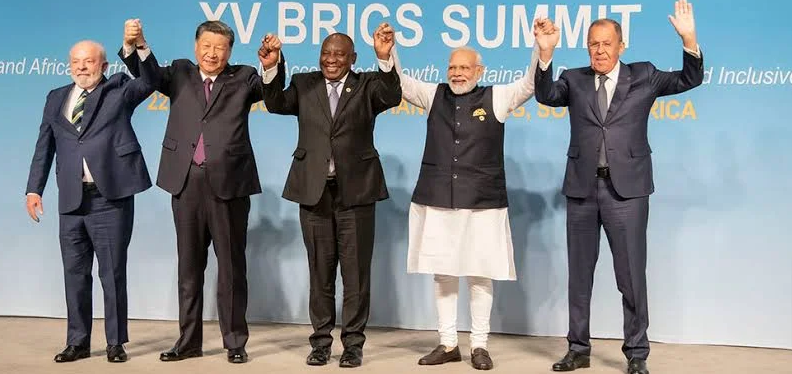
This year Nigeria becomes the BRICS member being the second country in Africa to join this important economic and political organization. The current chair of the Brazil, Russia, India, China, and South Africa (BRICS) grouping announced Nigeria’s interests in the grouping, especially on matters of cooperation and changing global order. Nigeria now become a member of several other countries as the BRICS partner countries hence making stronger the stance of the bloc on fulfilling multilateralism and redesigning the global order.
Nigeria BRICS partnership
-
Nigeria is the second African country to receive official membership into BRICS in the new calendar year after Uganda joined in January 2025.
-
The announcement has been made by Brazil which currently has the BRICS presidency, as Nigeria is considered as an actor that could substantiate and enhance cooperation within the Global South.
BRICS Partner Countries
-
The country now takes its position as a partner country to BRICS nations, together with other partner countries like Belarus, Bolivia, Cuba, Kazakhstan, Malaysia, Thailand, Uganda, and Uzbekistan.
-
The new partner-country status of Nigeria enables it to be an active member of BRICS and take part in its decision-making as well as in the use of its Instrument.
About BRICS
-
BRICS is a leading intergovernmental organization of five large developing and rapidly growing economies.
-
Formation: The BRIC association was formed in 2001 During the same year the organization had its first inaugural meeting in Russia in 2009.
-
Founding Members: The four founding members of BRIC are Brazil, Russia, India, and China(2009).
-
Brazil - 2009
-
Russia- 2009
-
India- 2009
-
China-2009
-
South Africa-2010
-
Iran- 2024
-
UAE- 2024
-
Egypt- 2024
-
Ethiopia- 2024
-
Saudi Arabia- 2024
-
Argentina- 2024
-
Indonesia-2025
Economic Influence
-
Together the five countries of BRICs have a total GDP of around one-third of the total international GDP.
-
Cover 46% of the world and represent an immense market and human resource base.
-
The bloc holds a crucial position in boosting trade and investment among the various emerging economies.
A counterbalance to Western Dominance:
-
BRICS provides an avenue for new economic powers to compete with G7 and other Western-dominated financial systems.
-
Here the group’s stance is for a multipolar world whereby they aim at diversifying from the American and European dominance most particularly in the areas of trade and finance.
Focus on Local Currencies and Non-Dollar Transactions:
-
BRICS has one of its aims to bring down the influence of the US dollar in its Cross-border transactions.
-
The objective is to encourage the use of physical currencies in local areas and develop a less degenerate financial environment that fully relies on dollars.
Advocacy for Global Institutional Reforms
-
BRICS is demanding more voice and vote reform in international organizations like the IMF and UN where the landscapes of international governance are shaped and where emerging economies like BRICS seek seats at the high table of decision-making.
Collaboration Among Emerging Economies:
-
Shows cooperation in technology, sustainable development, and others through BRICS.
-
The group fosters mutually beneficial knowledge of each other to address common issues which include global warming, disease outbreaks, and other adverse issues.
Energy and Resource Security
-
BRICS has many of its members as significant producers and consumers of energy, for instance, Russia, Brazil, and China, thus making it a strategic cooperation for energy security and development.
Support for Multilateralism
-
BRICS supports the concept of collective management through multilateral systems since it opposes the provision of individuals for every global issue.
Challenges Faced by BRICS
-
Diverse Economic Interests:
-
Currently, as it was mentioned before, BRICS is the union of countries with tremendously dissimilar economies – from the developed ones as China and India to the countries with oil-generating economies as Brazil and Russia.
-
These differences inevitably entail divergence of interest, particularly on matters to do with trade relations, economic liberalization, and foreign investments hence, making d [it] difficult to agree on some of the policies.
-
-
Political Differences:
-
However, BRICS nations have certain levels of common objectives in place however politically they differ from one another.
-
For instance, Sino-Indian, border disputes and the Russian struggle for a place with the West can affect the groups consensus in addressing certain aspects on the international relations platform.
-
-
Geopolitical Rivalries:
-
The conflict of interest in geopolitical nature equally impacts BRICS cohesion negatively where China and India have been in conflict and so have Russia with Western countries.
-
Further, relations with other countries that compose other alliances such as India with the US or an isolated Russia may make up some of the BRICS coalition creating differences in their total strength.
-
-
Economic Dependence on Global Markets:
-
While BRICS members strive for the block to become quite autonomous financially, most countries of this block are tied to World trade networks that are still dominated by the West.
-
This restrains the full liberation of BRICS and how they create their financial systems or shift from dollarization in the global economy.
-
Conclusion
The inclusion of Nigeria, a developing nation and emergent economy, as a partner country in BRICS, is a major landmark in Nigeria’s diplomatic calendar and for BRICS as an international organization. Considering Nigeria as an active player in the promotion of the South-South dialogue and change for effective global governance, it enhances the voice of the emerging market. This development highlights the role of BRICS as one of the most influential driving forces, towards the multipolar structure of the global economy of the Global South.



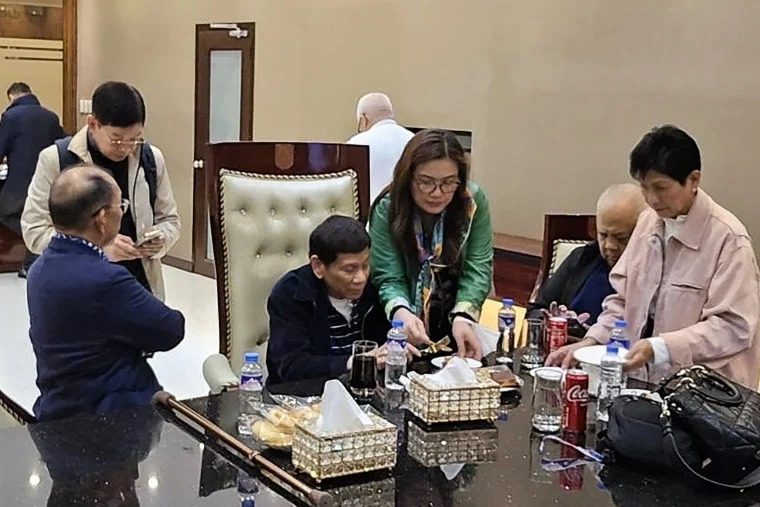 What Were The Reasons That Led To The Arrest Of Ex-Philippine President Rodrigo Duterte?
What Were The Reasons That Led To The Arrest Of Ex-Philippine President Rodrigo Duterte?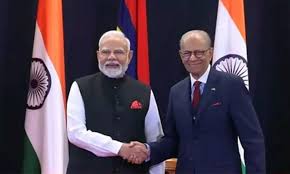 India-Mauritius Relations: Strengthening Strategic and Cultural Ties
India-Mauritius Relations: Strengthening Strategic and Cultural Ties India’s Growing Economic Footprint in Dubai: A New Era of Bilateral Ties
India’s Growing Economic Footprint in Dubai: A New Era of Bilateral Ties New Delhi to Host 20-Nation Security Meet: Key Agendas and Implications
New Delhi to Host 20-Nation Security Meet: Key Agendas and Implications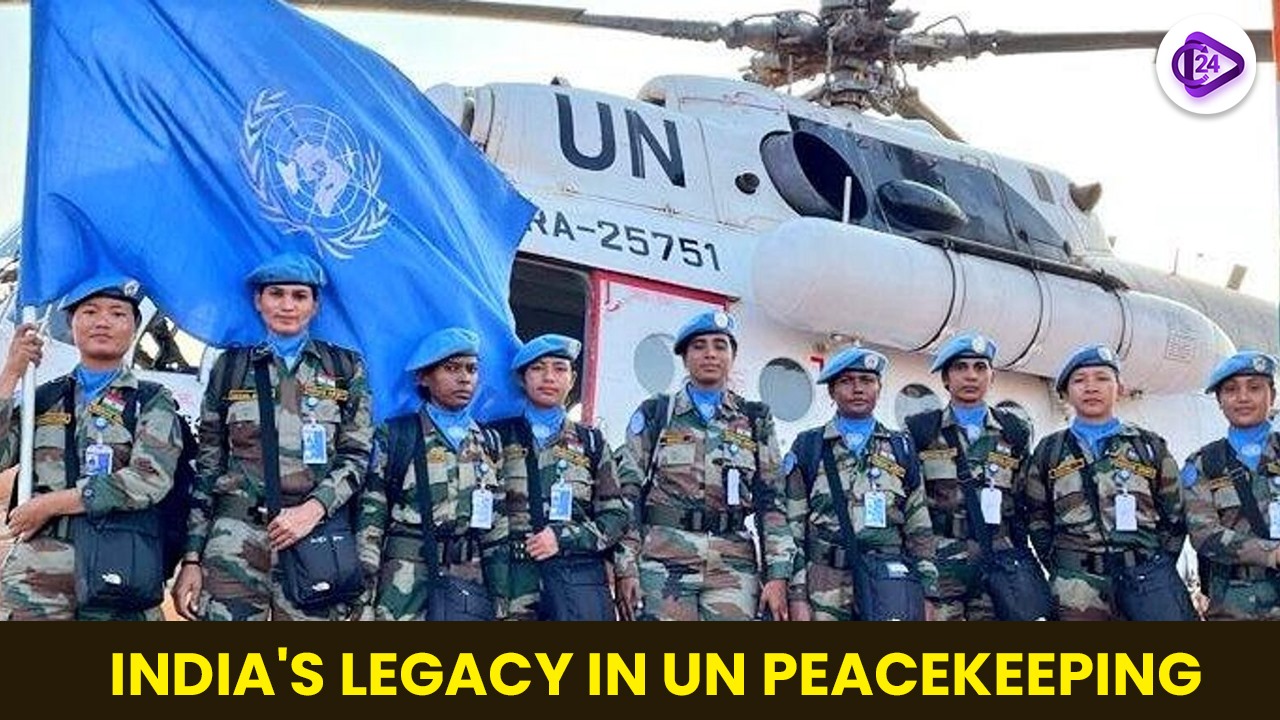 India's Legacy in UN Peacekeeping: Leadership, Commitment, and Sacrifice
India's Legacy in UN Peacekeeping: Leadership, Commitment, and Sacrifice India- Belgium’s Defence Cooperation in Indo-Pacific region
India- Belgium’s Defence Cooperation in Indo-Pacific region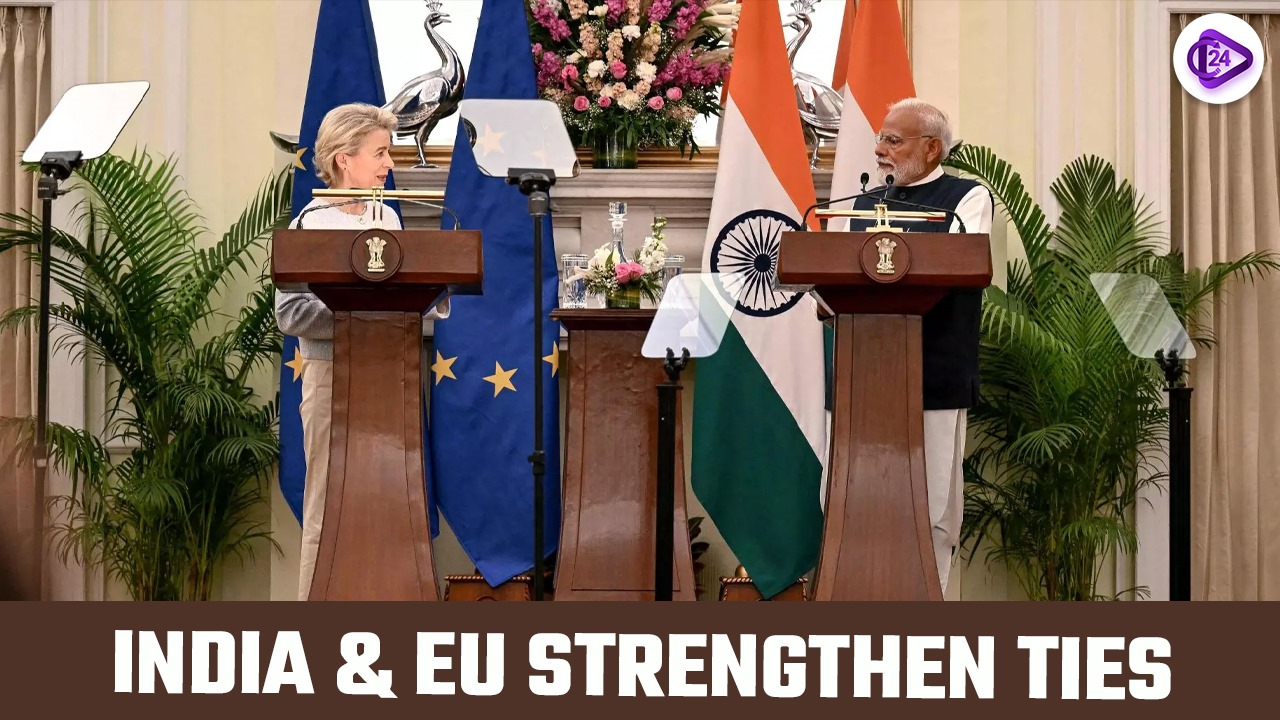 EU and India: Strengthening Ties Amidst Global Shifts
EU and India: Strengthening Ties Amidst Global Shifts Bhutan’s Strategic Role in India’s Regional Diplomacy: Budget 2025-26 Insights
Bhutan’s Strategic Role in India’s Regional Diplomacy: Budget 2025-26 Insights Blue Ghost Lunar Landing: Firefly Aerospace’s Historic Moon Mission
Blue Ghost Lunar Landing: Firefly Aerospace’s Historic Moon Mission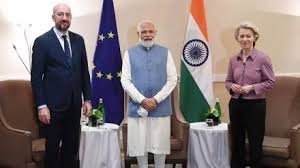 India-EU Strategic Partnership: Advancing Trade, Security, and Economic Cooperation
India-EU Strategic Partnership: Advancing Trade, Security, and Economic Cooperation






